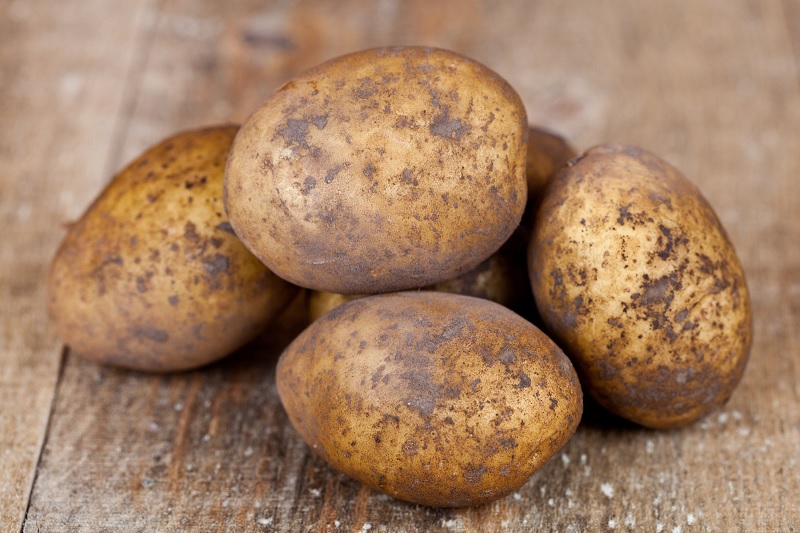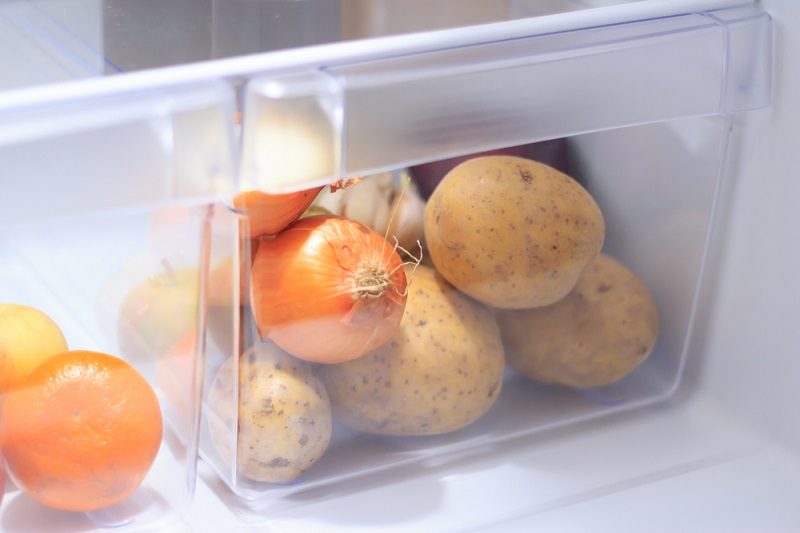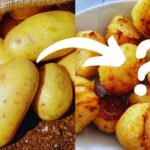Potatoes are the most important non-cereal crop in the world and is an important staple food in over 130 countries.
Potatoes come in many varieties, including red versions, each with its own purpose or each being best suited to a specific task.
In the UK, we tend to buy our potatoes without a huge amount of thought into what potato suits what task although supermarkets do label potatoes as ‘baking potatoes’ or ‘great for mashing’ but we often buy one type of potato and use it for all purposes.
Storing potatoes can be tricky. They are best suited to dry, dark, and cool storage that is well ventilated although a lot of people store them in the fridge for ease.
Improper storage, dehydration and general ageing of potatoes can cause the potato to go soft.
Providing the potato is only a little soft, it is still safe to eat.
How Can You Tell if a Potato Is Bad?
A good potato should be firm to the touch, free from large bruises and with a smooth tight skin on it.
A potato that has gone bad may be mushy in texture, overly soft or very bruised inside and out.
Bad potatoes may have a musty smell to them whereas potatoes that are ok to eat will just have an earthy scent.
If your potato shows any signs of being bad or is black inside when cut, then it should be discarded and not eaten.
What Are the Best Uses of Soft Potatoes?
Soft potatoes are most suitable for dishes where their structure is not as necessary to the dish. Again, only eat the potatoes if they are slightly soft—very soft and mushy potatoes may not be safe to eat.
If you are making chips or crisps or even roast potatoes, then a firmer potato is best suited.
Soft potatoes work well boiled and used as a mashed potato that can be eaten as it is or added on top of a dish such as a cottage pie.
They can even be cut into chunks and added to a soup where their tendency to be on the mushy side can be a good thing for the texture of the soup.
Why Do My Potatoes Go Soft?
Potatoes go soft due to dehydration. A potato is approximately 80% water and so the structure of the potato changes as the water leaves it and it is this that makes the potato soften.
Dehydration is often just a sign of the age of the potato.
Potatoes will be continuously losing moisture and they get to a point where this becomes obvious in the feel of the potato.

Can I Prevent My Potatoes Going Soft?
Whilst dehydration is a natural part of the ageing of a potato you can mitigate it somewhat by storing your potatoes correctly. This will slow down the softening process.
- Dark – Store your potatoes somewhere away from light (this prevents them growing shoots too)
- Cool – Potatoes last best in a colder environment, and somewhere like a root cellar is ideal
- Ventilate – Potatoes should not be stored in an airtight container. Net bags work well for storage.
- Eat them in plenty of time – Keep an eye on the date that you purchased the potatoes and try and use them before they start going soft
- Leave in ground – If you’ve grown the potatoes yourself, leave them in the ground until you need them, they will stay hard and edible for months even after the plant has died.
What Happens If I Eat Bad Potatoes?
Eating bad potatoes can cause an upset stomach and intestinal problems that may last 24-48 hours.
It is usually obvious when a potato is too bad to eat, and it is always better to err on the side of caution and dispose of the potato if you suspect it might have gone bad.

Chef’s Pick is your guide to the best kitchen equipment and appliances in the UK.
We help you understand the confusing world of cookers, ovens and cookware so you can get the most out of your kitchen.


